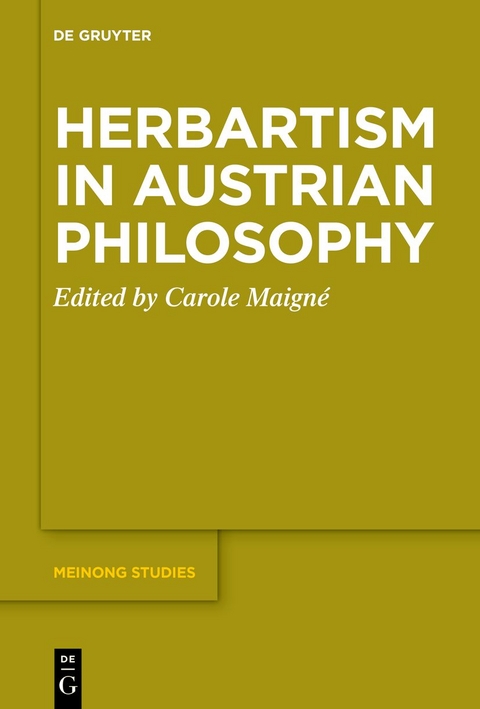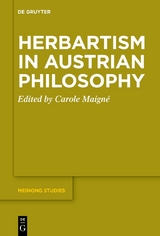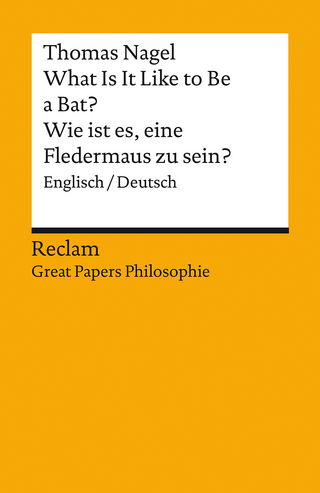Herbartism in Austrian Philosophy
Seiten
2021
De Gruyter (Verlag)
978-3-11-074729-4 (ISBN)
De Gruyter (Verlag)
978-3-11-074729-4 (ISBN)
The series presents historical and systematic studies on the philosophy of Alexius Meinong and his school, as well as on works influenced by aspects of Meinong’s philosophy. Furthermore, the series is open to contributions in the analytic-phenomenological tradition, mirroring the most recent developments in these disciplines.
"Herbartism in Austrian-Hungarian philosophy" is often an obligatory reference, but even if quoting Herbart and his school is frequent, reading them attentively is less evident. Because Herbartism reached its peak in the second half of the 19th century, and was effectively institutionalized as "official philosophy" of the Austro-Hungarian Empire, at least in Prague and Vienna, criticizing Herbartism often means discussing the "Austrian", "philosophical" and "institutional" criteria of the object under consideration. As the history of the Austrian tradition and theoretical reflections in this field expand, discussion of this tradition is becoming more and more tight and precise. The contributors in this volume recall the historical and conceptual importance of Herbartism in the field of Austrian philosophy, by addressing several aspects of his specific realism: philosophical, theoretical, pedagogical, psychological, and aesthetical.
"Herbartism in Austrian-Hungarian philosophy" is often an obligatory reference, but even if quoting Herbart and his school is frequent, reading them attentively is less evident. Because Herbartism reached its peak in the second half of the 19th century, and was effectively institutionalized as "official philosophy" of the Austro-Hungarian Empire, at least in Prague and Vienna, criticizing Herbartism often means discussing the "Austrian", "philosophical" and "institutional" criteria of the object under consideration. As the history of the Austrian tradition and theoretical reflections in this field expand, discussion of this tradition is becoming more and more tight and precise. The contributors in this volume recall the historical and conceptual importance of Herbartism in the field of Austrian philosophy, by addressing several aspects of his specific realism: philosophical, theoretical, pedagogical, psychological, and aesthetical.
lt;p>Carole Maigné, University of Lausanne, Lausanne, Switzerland.
| Erscheinungsdatum | 10.08.2021 |
|---|---|
| Reihe/Serie | Meinong Studies / Meinong Studien ; 11 |
| Verlagsort | Berlin/Boston |
| Sprache | englisch; deutsch |
| Maße | 155 x 230 mm |
| Gewicht | 357 g |
| Themenwelt | Sachbuch/Ratgeber ► Natur / Technik |
| Geisteswissenschaften ► Philosophie ► Philosophie der Neuzeit | |
| Schlagworte | Austrian Philosophy • Austro-Hungarian philosophy • Herbartism • Herbartismus • Österreichische Philosophie • Realism • Realismus |
| ISBN-10 | 3-11-074729-4 / 3110747294 |
| ISBN-13 | 978-3-11-074729-4 / 9783110747294 |
| Zustand | Neuware |
| Informationen gemäß Produktsicherheitsverordnung (GPSR) | |
| Haben Sie eine Frage zum Produkt? |
Mehr entdecken
aus dem Bereich
aus dem Bereich




